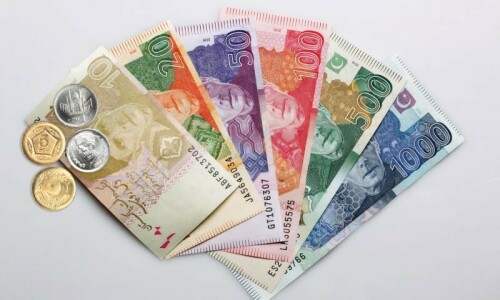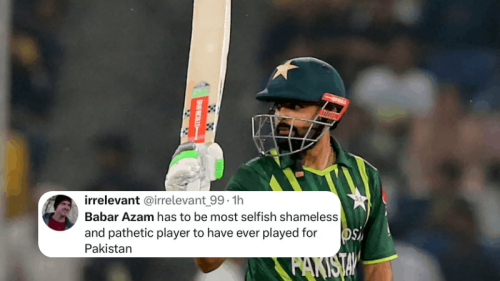Eminent journalist Kuldip Nayar shares the memories of his days in Pakistan before Partition:

After Partition we were among the very few Hindu families who did not want to migrate to India. We mistakenly thought that as large numbers of Muslims would continue to live in India, the same would be true of Hindus in Pakistan. Our resolve was strengthened when a few days prior to Partition, Mohammed Ali Jinnah, the founder of Pakistan, categorically pronounced that people were free to go to their mosques or temples and practice their faith because the state would never mix religion with politics. He reinterpreted his thesis of two nations, Muslims and Hindus, to mean Pakistanis and Indians.
Jinnah’s encouraging statement apart, there was his gesture to select a Hindu poet, Jagan Nath Azad, to compose the national anthem of Pakistan. The anthem was changed after Jinnah’s death for communal considerations: a Hindu writing the national anthem of a Muslim state appeared unthinkable.
Moreover, our family’s lifestyle was so comfortable that we did not wish to uproot ourselves. We had substantial property and my father was a leading medical practitioner in town. How could he, then past 60, begin his practice afresh in a new city? He had already spent most of his savings a few months prior to Independence building a new house, a new dispensary and an array of shops.
I have fond memories of my home, at Trunk Bazaar, Silakot, a two-storey house with a garden at the back where there was an old grave which my mother said was the qabar (grave) of some pir (saint). The grave was like a family shrine where we prayed in our own way and sought refuge from the outside world. It was here that we lit a lamp every Thursday and made an offering of sweets which we, the children, subsequently distributed amongst ourselves. A few years before Partition some Muslims demanded a passage to the grave on the plea that they should have free access to their religious site. We had to yield to the demand but the passage, which cut through our property, was rarely used.
Ours was a joint family, with my grandmother as the effective head. My grandfather was alive but he took a back seat. She was a great one for astrology and had the horoscope of every child prepared by a leading pundit, forecasting the future. I recall one occasion when the pundit dropped in at the house. A visit from him was always eagerly awaited because he would also read our palms. To me he said that I would read the malechh vidya (a language of foreigners), thereby meaning English. He also predicted that I would travel a lot by udhan khatola (plane). When my youngest brother Sindhu showed his hand, he was dismissed in a second with the remark that the lines on his hand had not properly developed. This was perhaps his way of saying that Sindhu would not live long.
When my grandmother died, I rode a horse alongside the cortege of family and friends who carried the coffin to the cremation ground. Women, some of them hired, rhythmically beat their breasts. Brahmins were fed one day and the poor of the locality on another. My grandmother apparently evoked a great measure of respect because scores of people were gathered at the cremation ground. I remember, I went to Haridwar with the family to immerse her ashes in River Ganges. I do not recall crying because the whole ceremony of her death wore an aura of festivity. This was the custom among Hindus when a woman died at a ripe old age.
My immediate family comprised my father, mother and four brothers — Rajinder, Hardip, Surinder — and a sister, Raj, who used to live in Jamshedpur at the time of Partition. Sindhu had died of cholera a few months earlier. I can never forget his last moments: he passed away with his head resting on my lap. He called me bhapa (elder brother), and when his moment came, he asked me to hold him tight so as to prevent anyone from taking him away. I held him tight, but I could feel his body going limp.
His last words were, ‘Bhapa leave me, I can see the light. I am going there’, and then he was gone. His loss left me distraught for a long time.
His parting words often make me wonder whether there is indeed a higher power controlling the universe. The light, to which Sindhu referred, represents a power which eventually leads us in our journey from life to death. Why? How? And when? I cannot say, but, notwithstanding my leftist leanings, I have come to believe that there is a power beyond: be it God or any other name you may choose to give it. I have oscillated between faith and doubt for many years but have come to accept that there is a force which I feel within but which I cannot explain. I am neither an atheist nor an agonistic; I am a believer, but notwithstanding this I have failed to curb my doubts and misgivings, and prayer has not helped either.
I envy those who have an implicit faith in God. They do not have to seek explanations because they don’t need any. I am convinced that there is something called destiny which makes you choose a particular path from the many before you. In my own life, I have preferred one option over another without really knowing why, and that has made all the difference. I studied law but settled on journalism. I tried to join the Indian Administrative Service (IAS) but failed to make it. Had I been successful I would have retired 25 years ago. But this is destiny. Perhaps my faith springs from something I read many years ago inscribed on a tablet on a restaurant wall near Jama Masjid in Delhi: Waqt se pehley nahin, Muqaddar se ziada nahin (Not before your time, nor more than your destiny).
My wife, Bharti, is quite the opposite. She has implicit faith in god and is a practising Hindu, who goes to the temple every day and fasts on the days enjoined by her religion. She organises havan for her children and grandchildren on their birthdays and has dragged me along to many pilgrimages, from Amarnath in the north to Rameshwaram in the south.
I have, however, always believed in the pir buried in the back garden of our house in Sialkot. I respect him as a family elder or patron, protecting from all unpleasant events. Even when I left Murray College at Sialkot to join the Forman Christian College in Lahore (I was refused admission in Government College), I carried with me the blessings of the pir, my unseen guardian. I feel he represents something spiritual; something akin to bhakti or sufism. Did this dependence make me a coward? Anyone could bully me. I accepted beatings in the brawls in which I unwillingly participated. A physically strong person always impressed me. Aptly, my mother had nicknamed me Bhola (innocent).














































